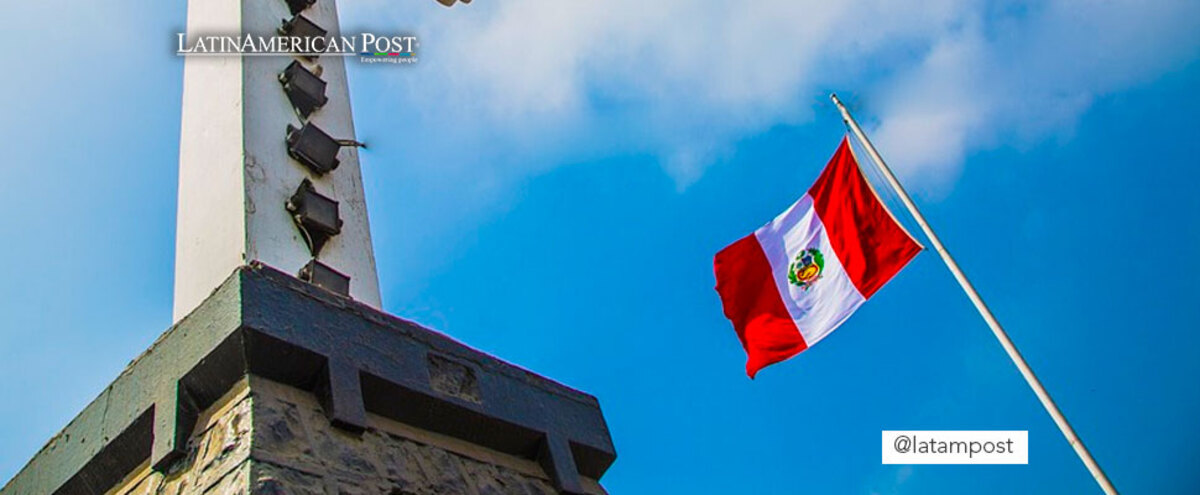Peru Lives in a Constant Political Crisis, But Not an Economic One
Despite the constant political crisis in Peru that charges presidents, the country is one of the most stable economies in all of Latin America, according to indicators

Photo: Pixabay
LatinAmerican Post | Santiago Gómez Hernández
Listen to this article
Leer en español: Perú vive en una constante crisis política, pero no económica
A president does not finish his term and faces several accusations of crimes in Peru. If it were news in any country in the region, it would be extremely striking, but not there. The Andean country has become accustomed to political instability, to a constant crisis and to the fact that its presidents do not last as long as they have to last and then end up in jail. This is what happened with former President Pedro Castillo.
During the year and a half that Castillo's presidency lasted, he suffered 2 failed impeachment attempts. He was unable to unify a parliamentary majority (something that none of the last presidents has achieved) and since he took office he felt the rigor of an opposition that was only looking for his way out. At the same time, justice had been following him due to accusations of corruption from his closest circle that, in some cases, ended up splashing him.
Finally, the former public school teacher and union leader attempted a self-coup when he felt cornered and before Congress again attempted a vacancy on ethical grounds. A dissolution of the legislature that did not have the support of his party, nor his ministers, nor the public force, nor the judiciary. A dissolution of Congress that recalls the dictator Alberto Fujimori, with whom Castillo shares prison today.
When this new chapter to the already busy political news in Peru occurred, the markets showed their concern. The Peruvian Sol plummeted, depreciating 1.4% against the US dollar, according to El Economista. Also, Bloomberg posted a 0.4% drop in the stock index.
Despite the bad political news, Peru had been registering an increase of 4.59% in the stock index of the Lima Stock Exchange in the year. This makes it clear that in the South American country, politics seems to be on a different path than the economy.
It is clear that Castillo is not the first president to leave for an Impeachment. Previously, Pedro Pablo Kuczynski lived the same fate (being elected by popular vote and not finishing his term). Previously, all the last presidents have ended up in prison for corruption scandals.
But despite decades of political instability, Peru has had a gradual growth of its economy for almost 30 years. In just 2021, its GDP increased by 13.5%, after contracting 11.1% during 2020 (a pandemic year), according to ECLAC. According to the Economic Center for Latin America and the Caribbean, this is due to the increase in investment in construction sectors and the increase in copper prices. The price of the material reached maximum levels in 11 years.
Peru Does Not Peel the "Copper" in Economic Matters
According to Statista, the third country with the largest copper reserves is Peru. With 77 million metric tons, it is only surpassed by Chile (200) and Argentina (93). With this being a vital material for a world addicted to electricity, it is in increasing demand.
Also read: How Is Prodata Energy? the Venezuelan Company that Will Be Able to Supply Gas to Colombia
Additionally, energy transition policies depend on copper, as it is one of the best conductors of cleanly produced electricity. This is why, regardless of who is in charge (right or left), the political constitution of Peru shields the contracts already signed. In Peru, article 62 of the constitution prohibits new laws from affecting existing contracts. A constitution signed in 1993 drawn up by the dictator Alberto Fujimori and which is still in force today, despite the fact that various political forces ask for a new one (including former president Pedro Castillo).
A Strong Institutions for the Economy
When political institutions seem shakier than a wobbly table, economic institutions are what calm markets. It is precisely a strong and independent Central Bank that has guaranteed economic stability for foreign investors and Peruvian consumers.
This means that, despite the changes in the Government, the departure of presidents and ministers, the monetary policy of Peru does not change. It gives guarantees to investors and allows measured savings.





